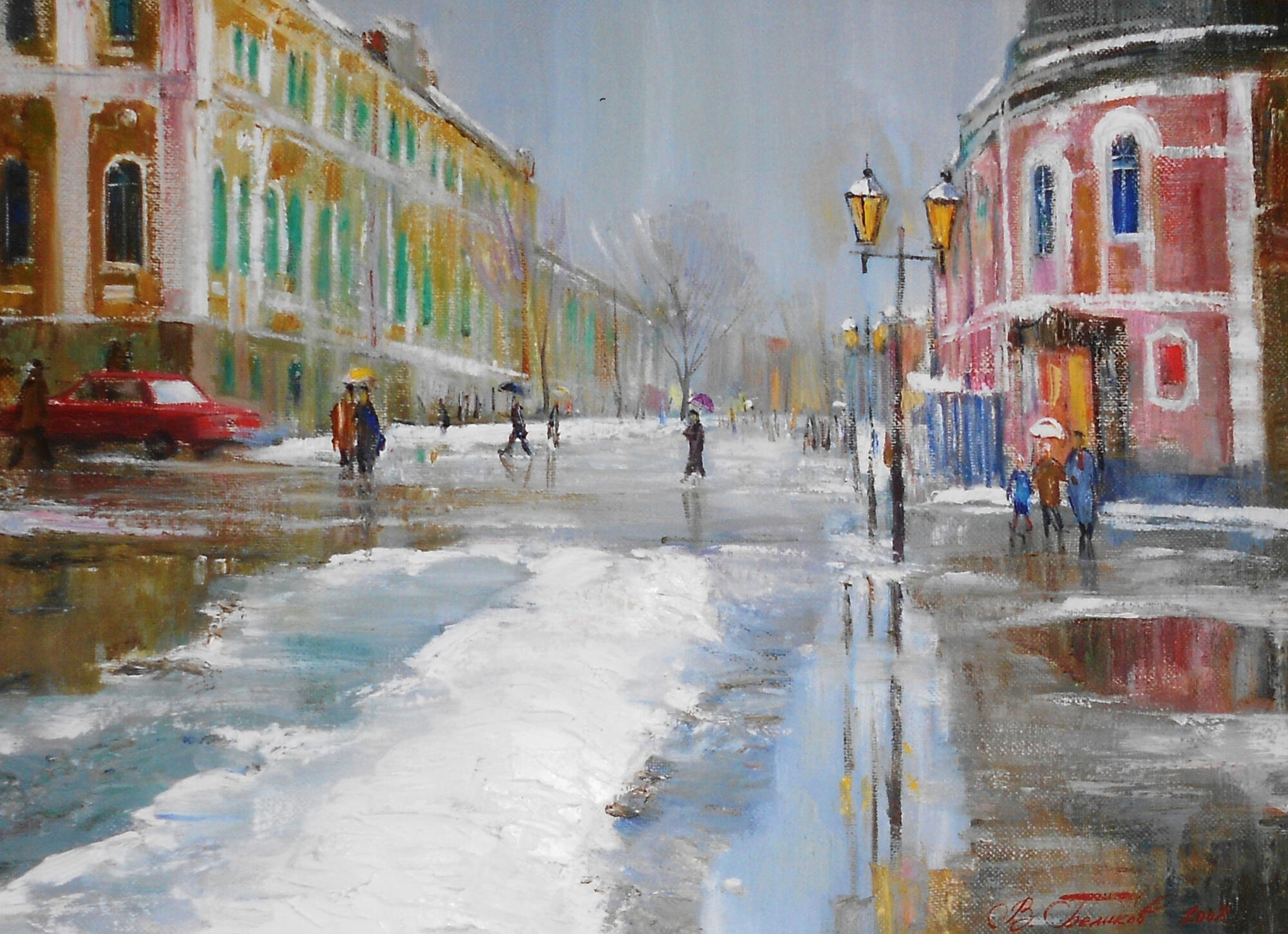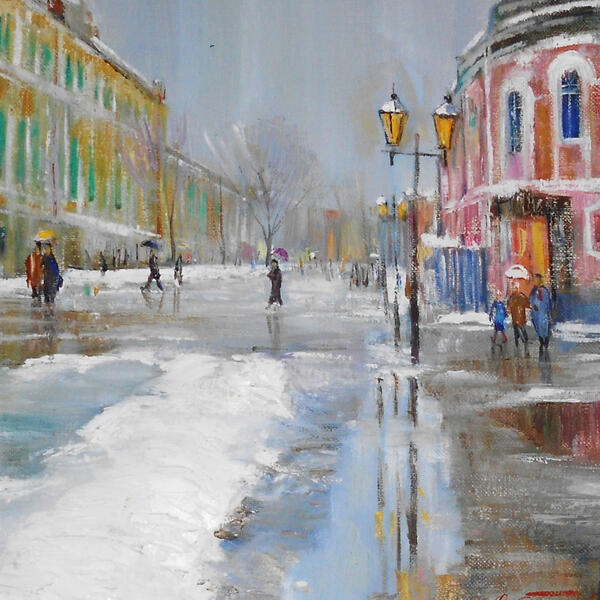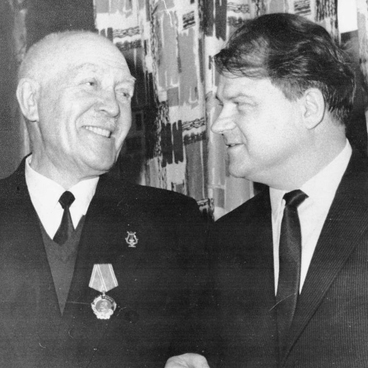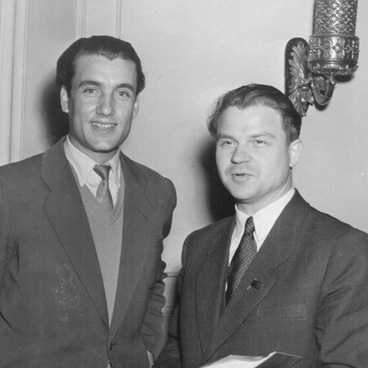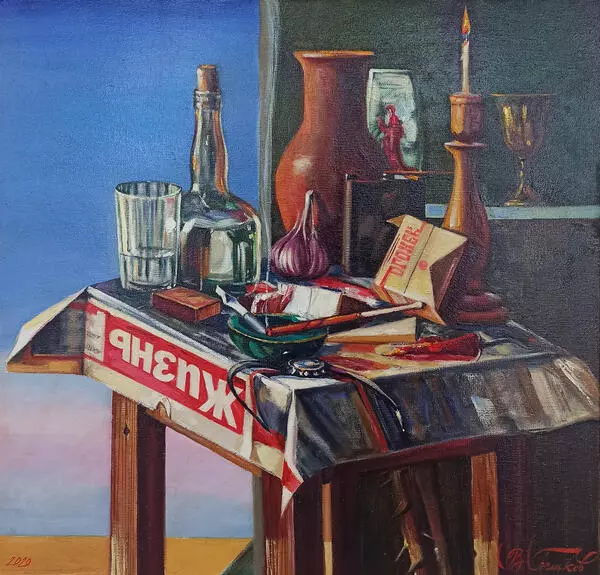Artist Viktor Belikov was born in the Republic of Dagestan, and graduated with honors from the Dagestan Art School named after M.A.Djemal. After graduation, the future painter moved to Lipetsk, where his career began. He began to collaborate with leading artists of the region — Viktor Luzanov, Vilen Dvoryanchikov, Viktor Korolev etc.
Belikov is called one of the most popular artists in the region. He takes an active part in the artistic life of the town, presents new works every year and participates in regional, interregional and all-Russian exhibitions.
The painter received many awards: a diploma of the Russian Union of Artists for participation in the II All-Russian art exhibition ‘Renaissance’ (Belgorod), a diploma of the All-Russian art exhibition ‘Yeseninskaya Rus’ (Ryazan), certificates of honor from the Lipetsk Regional Council of Deputies, Department of Culture and Tourism of the Lipetsk region, as well as the department of internal policy of the Lipetsk region.
The artist works in the genre of landscape, still life and portrait paintings. His works are kept in the Lipetsk Regional Museum of Local History, as well as in art galleries and private collections in Russia, Europe and the USA.
The picture ‘Yelets. Street of the World’ was painted by Belikov in 2002. He depicted a part of the central street of Yelets (Mira Street), which was formerly called Torgovaya Street. It is crossed by Lev Tolstoy Street. The town library is located in a pink two-story building on the right. Ancient buildings with semicircular windows, lanterns — these elements create the atmosphere of a quiet provincial town. The melting snowdrift, puddles and transparent silhouettes of trees in the background create a feeling of spring freshness.
The Lipetsk region administration presented Khrennikov with Belikov’s painting as a reminder of his hometown. The composer often came to his small homeland and said: “Yelets is the most sacred place for me on earth”, he said more than once. “Earlier in my youth, and now the most pleasant thing for me is to come to Yelets and walk along its streets. The town atmosphere and everything that I was brought up on, that musical culture of the Russian province — it is all in my music…”
In 2000, Khrennikov donated the work to the collection of the house-museum.
Belikov is called one of the most popular artists in the region. He takes an active part in the artistic life of the town, presents new works every year and participates in regional, interregional and all-Russian exhibitions.
The painter received many awards: a diploma of the Russian Union of Artists for participation in the II All-Russian art exhibition ‘Renaissance’ (Belgorod), a diploma of the All-Russian art exhibition ‘Yeseninskaya Rus’ (Ryazan), certificates of honor from the Lipetsk Regional Council of Deputies, Department of Culture and Tourism of the Lipetsk region, as well as the department of internal policy of the Lipetsk region.
The artist works in the genre of landscape, still life and portrait paintings. His works are kept in the Lipetsk Regional Museum of Local History, as well as in art galleries and private collections in Russia, Europe and the USA.
The picture ‘Yelets. Street of the World’ was painted by Belikov in 2002. He depicted a part of the central street of Yelets (Mira Street), which was formerly called Torgovaya Street. It is crossed by Lev Tolstoy Street. The town library is located in a pink two-story building on the right. Ancient buildings with semicircular windows, lanterns — these elements create the atmosphere of a quiet provincial town. The melting snowdrift, puddles and transparent silhouettes of trees in the background create a feeling of spring freshness.
The Lipetsk region administration presented Khrennikov with Belikov’s painting as a reminder of his hometown. The composer often came to his small homeland and said: “Yelets is the most sacred place for me on earth”, he said more than once. “Earlier in my youth, and now the most pleasant thing for me is to come to Yelets and walk along its streets. The town atmosphere and everything that I was brought up on, that musical culture of the Russian province — it is all in my music…”
In 2000, Khrennikov donated the work to the collection of the house-museum.
